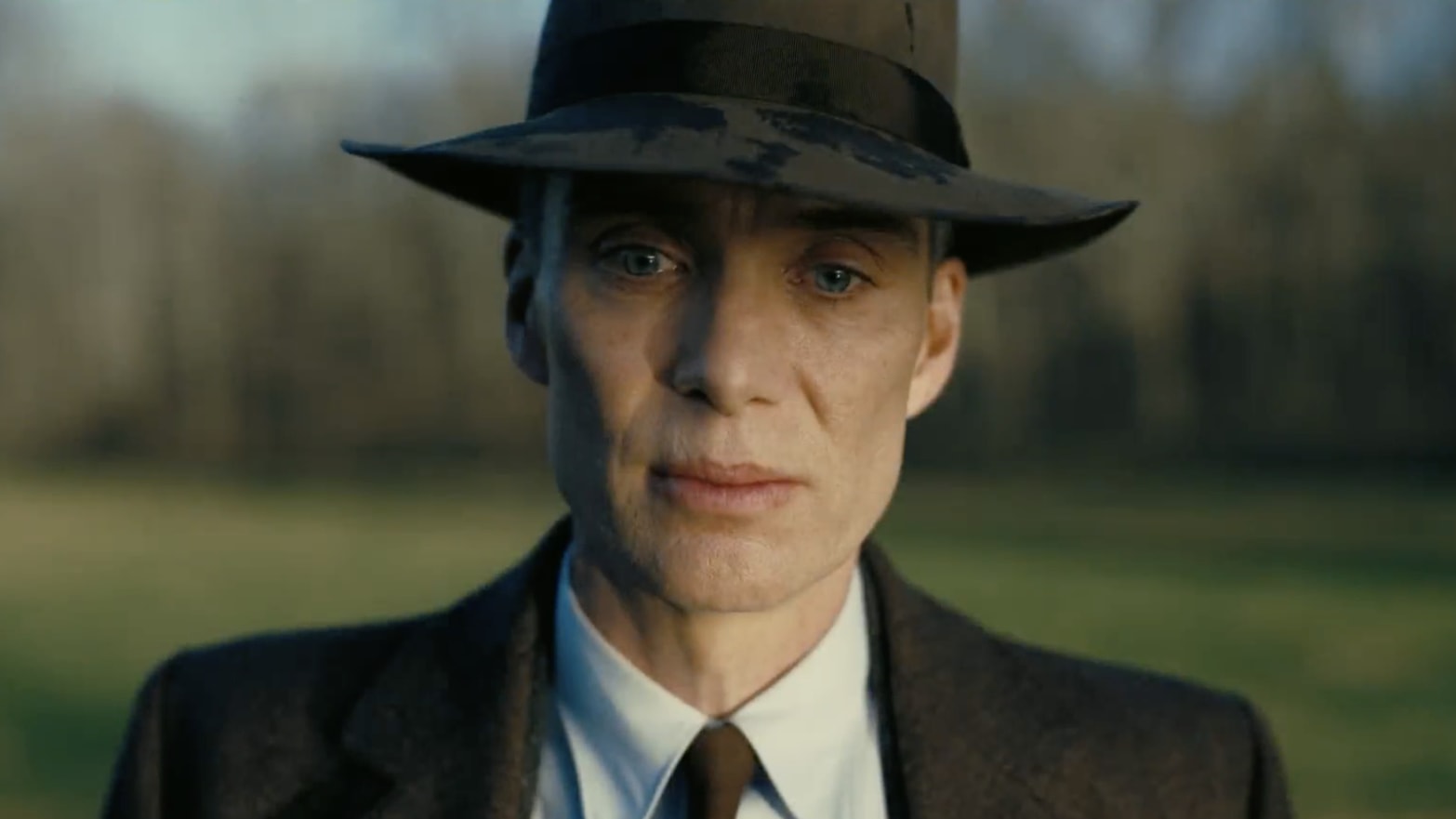Oppenheimer (2023) Directed by Christopher Nolan
7B
This ambitious biopic focuses on Robert Oppenheimer, so-called father of the atomic bomb. In effect,
Oppenheimer tells his story in what almost amounts to three separate movies, mostly told in non-linear fashion at that. Which is not as confusing as it may sound. We examine Oppenheimer's (Cillian Murphy) early days as an academic, a left-winger who sometimes sympathized with his Communist friends, but never quite got around to joining the party. The second narrative deals with Oppenheimer's decision to become leader of the Manhattan Project, which was dedicated to building the first nuclear weapon, primarily because of his fear of what would happen if Nazi Germany acquired the bomb first, a very real possibility. The third segment examines the repercussions of the bomb, both in terms of Oppenheimer's feelings of guilt but also in terms of an attempt by vengeful arch-conservative Congress members to smear Oppenheimer's reputation because of his left-wing tendencies and attachments, including to his wife who possessed, for the time, dangerous political convictions (Emily Blunt, wasted except for one key scene).
It seems impossible to avoid discussion of structure when it comes to Christopher Nolan movies. It is doubtful that Nolan could direct a straight narrative any longer if his life depended on it. The non-linear structure of much of this film is both advantageous and problematic. It is advantageous in that it keeps the audience on its collective toes, peaks the audience's curiosity about what happens next, and showcases an abundance of acting talent in a wide variety of characters. With the exception of Jason Clarke, who as usual gracelessly overplays a villainous character, everybody else is excellent, especially Murphy whose facial expressions contribute to the emotional impact which the rest of the film largely lacks. Indeed,
Oppenheimer may set a record for Oscar nominations in the acting categories.
But while the non-linear structure is great at riveting our attention and showcasing great acting, its downside is that it lacks the cumulative power that a traditional, linear narrative can build along the way to reach a crescendo at the climax. While the movie is technically impressive as hell, I never felt deeply emotionally involved in the proceedings at all. The only time I felt actual flesh-and-blood life enter the story was when Matt Damon was on screen as the Army Colonel Leslie Groves, in charge of organizing the Manhattan Project. Dedicated, down-to-earth, and blunt, Damon's Colonel seemed like the most human character in the movie. I also think Nolan made a misstep late in the movie focusing so much of the denouement on the fate on Oppenheimer's arch-nemesis Louis Strauss. "Bad guy gets his comeuppance" was not what the ending should have emphasized so dramatically. Tonally, the choice just seemed like an inexplicable unforced error. Nonetheless,
Oppenheimer is an impressive achievement, one well worth seeing on a big screen, but it felt more like an intellectual exercise to me rather than providing any kind of profoundly human insight.








